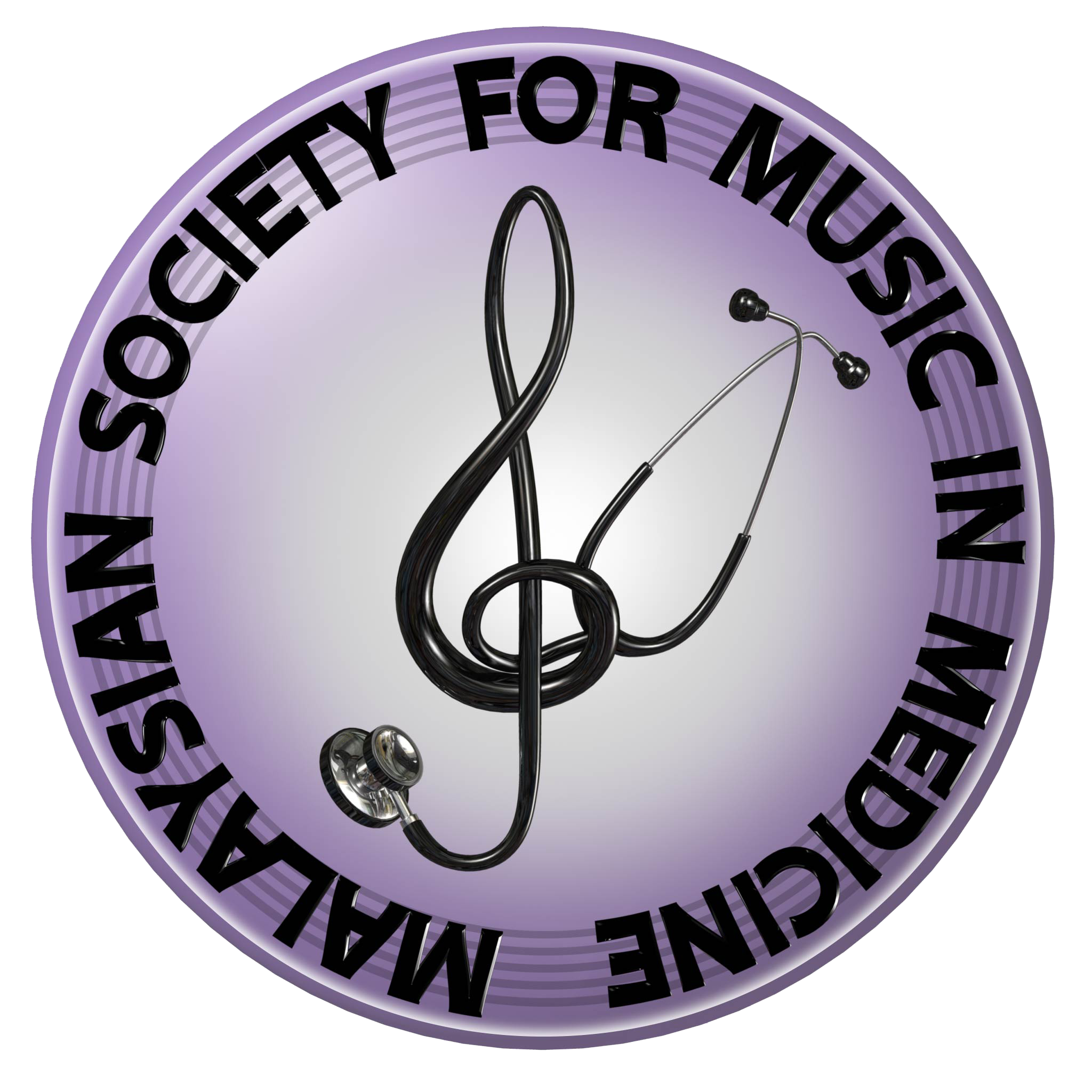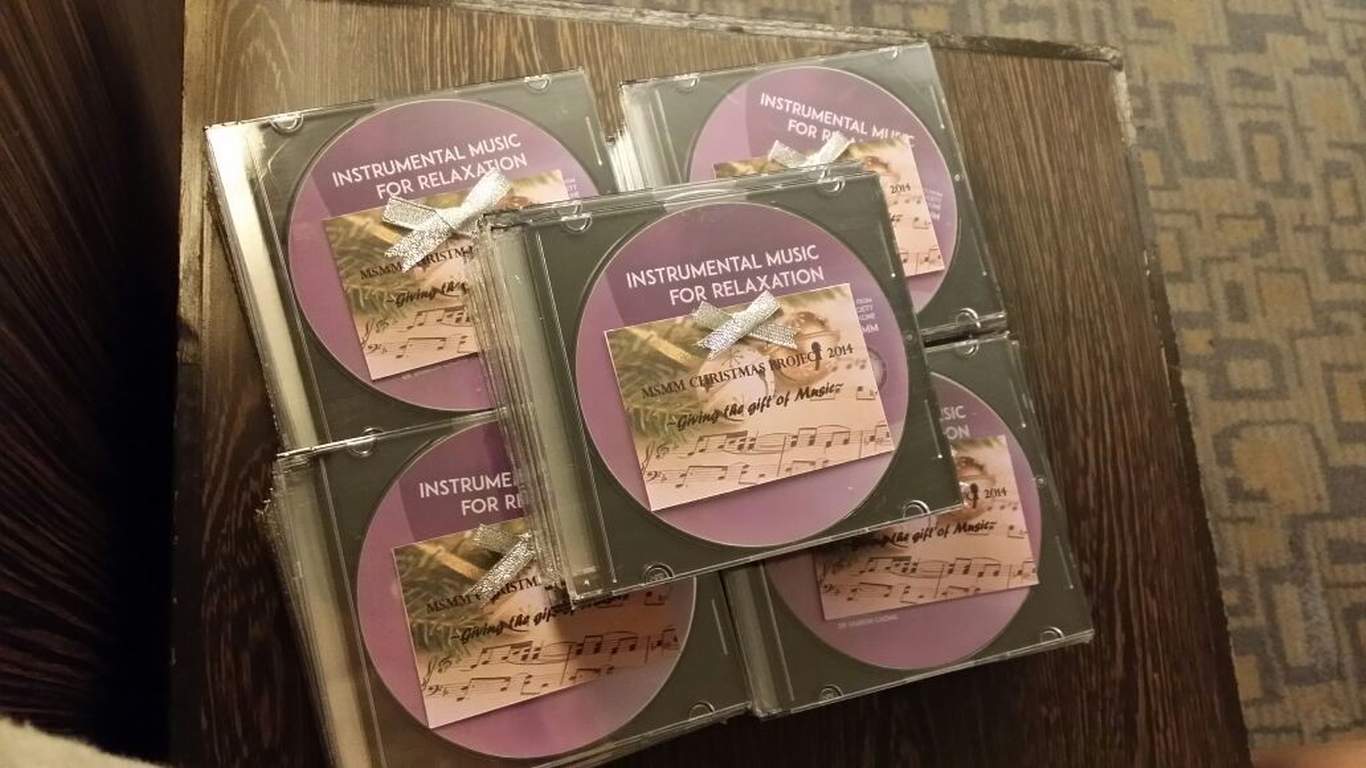


Pertubuhan Muzik Dalam Perubatan Malaysia
马来西亚音乐医学协会
(PPM-006-10-03042013)
The Malaysian Society for Music in Medicine (MSMM) is an avenue to create awareness and promote the use of music as therapy and medicine in various clinical settings, via interdisciplinary research collaborations, education and other activities.

Note: This is the general FAQ on MSMM.
The Malaysian Society of Music in Medicine (MSMM) was founded by Dr. Sharon Chong, a freshly graduate young doctor who pursued her passion for music by bringing together a team of likeminded people to advocate for Music in Medicine in Malaysia. It was formally registered with the Registrar of Societies as an NGO in April 2013.
MSMM comprises of a group of people from different disciplines with interest to promote the development and applications of music (sound and resonance through the elements of rhythmn, melody and harmony) in healing and in promoting health and wellbeing. They are healthcare professionals, music therapists and practitioners, educationalists, researchers and scientists working towards enhancing awareness, knowledge, accepatance, practice and research into the role of music in health and healthcare.
You may contact the secretariat by any of the official channels:
- Facebook: https://www.facebook.com/msmusicmedicine
- Email: hello@msmm.org.my or msmusicmedicine@gmail.com
You can also write in to our mailing address:
Peninsular Malaysia
c/o The Mind Hub
Malaysian Mental Health Association
Block A Unit 2-8, TTDI Plaza,
Jalan Wan Kadir 3
Taman Tun Dr Ismail
60000 Kuala Lumpur
MALAYSIA
Or
East Malaysia
c/o International Music House
No. 1752-1753, Block 10,
2½ Mile Ground Floor, Jalan Rock,
93200 Kuching,
Sarawak
MALAYSIA
You may fill up the MSMM membership form that you can get at https://www.msmm.org.my/membership/ page.
There are five (5) membership categories in MSMM:
| Membership Categories | Entrance Fees (MYR) | Annual Subscription (MYR) |
|---|---|---|
| Ordinary Member | RM50.00 | RM50.00 |
| Student Member | RM25.00 | RM25.00 |
| Associate Member | RM50.00 | RM50.00 |
| Affiliate Member | RM50.00 | RM100.00 (per annum or RM500.00 for 10 years) |
| Lifetime Member | RM200.00 one-off payment (includes entrance fees) | |
Kindly submit application by email to msmusicmedicine@gmail.com, enclosing receipt of payment mode.
The renewal fees are to be made on annual basis. The renewal fees are listed below:
| Membership Categories | Entrance Fees (MYR) | Annual Subscription (MYR) |
|---|---|---|
| Ordinary Member | RM50.00 | RM50.00 |
| Student Member | RM25.00 | RM25.00 |
| Associate Member | RM50.00 | RM50.00 |
| Affiliate Member | RM50.00 | RM100.00 (per annum or RM500.00 for 10 years) |
| Lifetime Member | RM200.00 one-off payment (includes entrance fees) | |
Kindly submit application by email to msmusicmedicine@gmail.com, enclosing receipt of payment mode. Payment can be made by CHEQUE or DIRECT ONLINE PAYMENT to:
OR if you prefer to do payment via Paypal:
1. Select an option
2. Click on 'Pay Now'
and then you will be redirected to Paypal website for us to receive your payment.
You can cancel your MSMM membership by not paying your renewal fees.
Please write in via email to msmusicmedicine@gmail.com about your intention not to renew, so that we can update our membership records.
From time to time, MSMM will organise talks, get-together events, or participate in other societies' activities.
We normally put up promotional posters on this website, and also on our Facebook page. So, do check our website often and 'Follow and Like' our Facebook page to get updates into your Facebook feed.
You can also drop us an email at msmusicmedicine@gmail.com for further information.
Note: The following FAQ is specific to music therapy.
Music therapy is the professional use of music and its elements as an intervention in medical, educational, and everyday environments with individuals, groups, families, or communities who seek to optimize their quality of life and improve their physical, social, communicative, emotional, intellectual, and spiritual health and wellbeing. Research, practice, education, and clinical training in music therapy are based on professional standards according to cultural, social, and political contexts.
These are some of the workplaces for a music therapist: Psychiatric and medical hospitals, rehabilitative facilities, outpatient clinics, day care centers, special schools, agencies serving people with developmental disabilities, Community Mental Health Care Centers, drug and alcohol programs, correctional facilities, nursing homes, senior centers, hospice programs.
Music therapy is not a substitute for music lessons. However, clients will often acquire certain musical skills in the course of a music therapy program, such as sensitivity to pitch, rhythmic control, awareness of form, manipulative control etc.
Children, adolescents, adults, and the elderly with mental health needs, developmental and learning disabilities, Alzheimer's disease and other aging related conditions, substance abuse problems, brain injuries, physical disabilities, and acute and chronic pain, including mothers in labor.
> That the client or patient has to have some particular music ability to benefit from music therapy — they do not
>That there is one particular style of music that is more therapeutic than all the rest — this is not the case. All styles of music can be useful in effecting change in a client or patient's life. The individual's preferences, circumstances and need for treatment, and the client or patient's goals help to determine the types of music a music therapist may use.
Music therapists assess emotional well-being, physical health, social functioning, communication abilities, and cognitive skills through musical responses; design music sessions for individuals and groups based on client needs using music improvisation, receptive music listening, song writing, lyric discussion, music and imagery, music performance, and learning through music; participate in interdisciplinary treatment planning, ongoing evaluation, and follow up.